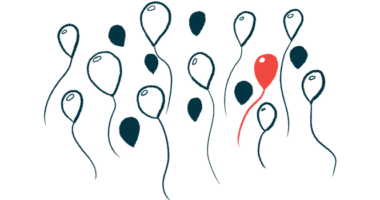No link to gene variations found for adrenal function recovery in study
Others factors seen as likely to play a role in recovery after surgery

Genetic variations were not significantly associated with the time to recovery of adrenal function following surgery for Cushing’s disease, an exploratory study reported.
According to the researchers, these findings indicate that other factors, such as surgical and clinical factors, are likely more relevant to define the timing of adrenal function recovery post-surgery.
The study, “Exploratory Study of the Association of Genetic Factors With Recovery of Adrenal Function in Cushing Disease,” was published in the Journal of the Endocrine Society.
Cushing’s disease is caused by a tumor in the brain’s pituitary gland, which lead to the excessive production of adrenocorticotropic hormone, known as ACTH. This hormone prompts the adrenal glands, located atop the kidneys, to produce the stress hormone cortisol. Elevated cortisol levels are mainly responsible for the symptoms of Cushing’s.
Surgery to remove the pituitary tumor is considered the first-line treatment for Cushing’s disease. When surgery successfully removes the tumor, patients often experience a period of adrenal insufficiency, in which the adrenal glands fail to produce enough of certain hormones, including cortisol. This can last anywhere from a few months to several years — and at present, it’s difficult to predict how long it may last.
Now, a team led by scientists at the National Institutes of Health (NIH) explored whether genetic variations might influence the course of adrenal insufficiency after surgery for Cushing’s disease.
The scientists analyzed data from 90 people who successfully underwent surgery for Cushing’s disease. All of the patients entered in remission after undergoing surgery, as indicated by a sharp decrease in cortisol levels, and were followed for at least three months. Most of these patients were children when they were diagnosed, and more than 80% were white individuals.
“Thirteen patients had not recovered [adrenal function] at the time of their last follow-up, while 13 patients experienced recurrent disease after initial remission,” the team wrote.
The analysis specifically focused on the potential effects of genetic variants in 47 different genes that are thought to play a role in influencing adrenal gland function.
In initial analyses, variations in three of those genes — BAG1, OPRK1, and PDRX3 — showed a possible link to longer adrenal insufficiency following surgery. However, when the scientists made statistical adjustments, including to remove those patients who had a relapse of Cushing’s disease, none of these associations remained statistically significant.
[These findings] could suggest that clinical, surgical, or other factors are more important in determining the duration of postoperative [adrenal insufficiency].
The team noted that this study was limited by the small number of patients, as well as the limited number of genes included in the analysis.
“Because of the limited number of patients, we opted to limit the analysis to variants with potentially higher effect size (rare and predicted damaging), but this may have led to exclusion of potential variants of interest,” the team wrote.
“To conclude, we did not identify a strong genetic modifier of [adrenal function] recovery in this exploratory study,” they wrote, meaning there was no clear association between genetic variations and time to recovery after Cushing’s surgery.
These findings “could suggest that clinical, surgical, or other factors are more important in determining the duration of postoperative [adrenal insufficiency],” the team wrote.







